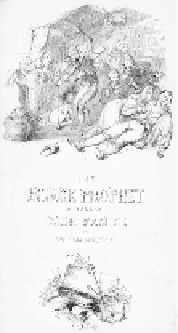Geoscience Reference
In-Depth Information
Residual outrage at this near-genocidal event is nourished by the vast Irish diaspora now
spread across the world. For all the nostalgic attachment to the motherland and its history,
however, the life and culture of “pre-famine” Ireland eludes recapture. In early nineteenth-
century Ireland, most peasants were illiterate, spoke Irish exclusively, and left no records
of their lives and sufferings. This includes the traumatic events of 1816-18, for which even
official records are scant.
The Black Prophet
, then—written by an Irish son of the land who
“crossed over” into the metropolitan, English-speaking world of the empire—stands alone as
a literary monument to that doleful chapter of Irish history, written from the viewpoint of the
peasantry themselves. In that novel, Carleton set himself a melancholy, monumental task: to
record “all the final terrors of a people on the edge of extinction.”
4
Carleton's account of the 1816-18 tragedy begins, as all Tambora stories must, with the
Frankenstein weather of the Year without a Summer. He witnessed the same skies over the
British Isles that attracted the scientific interest of Luke Howard and awoke Turner and Con-
stable to the sublime subject of sunsets and clouds:
The sun, ere he sank among the dark western clouds, shot out … a light so angry, yet so
ghastly, that it gave the whole earth a wild, alarming and spectral hue, like that seen in some
feverish dream.
Carleton, writing three decades after the event, has awarded the red volcanic skies of 1815
the retrospective power of famine and fever, collapsing them in his narrative memory with a
very different canvas of sky—the relentless bitter cold and rain of 1816:
Figure 8.1.
The title page from William Carleton's
The Black Prophet
(1847) shows the hero fainting from
hunger, while beneath the author's name is the haunting image of a freshly dug grave.
The sky was obscured by a heavy canopy of low dull clouds that had about them none of
the grandeur of storm, but lay overhead charged with those wintry deluges which we feel
to be so unnatural and alarming in autumn, whose bounty and beauty they equally disfig-
ure and destroy…. The whole summer had been sunless and wet—one, in fact, of ceaseless
rain, which fell day after day, week after week, and month after month, until the sorrowful
consciousness had arrived that
any
change for the better must now come
too late
, and that

Search WWH ::

Custom Search